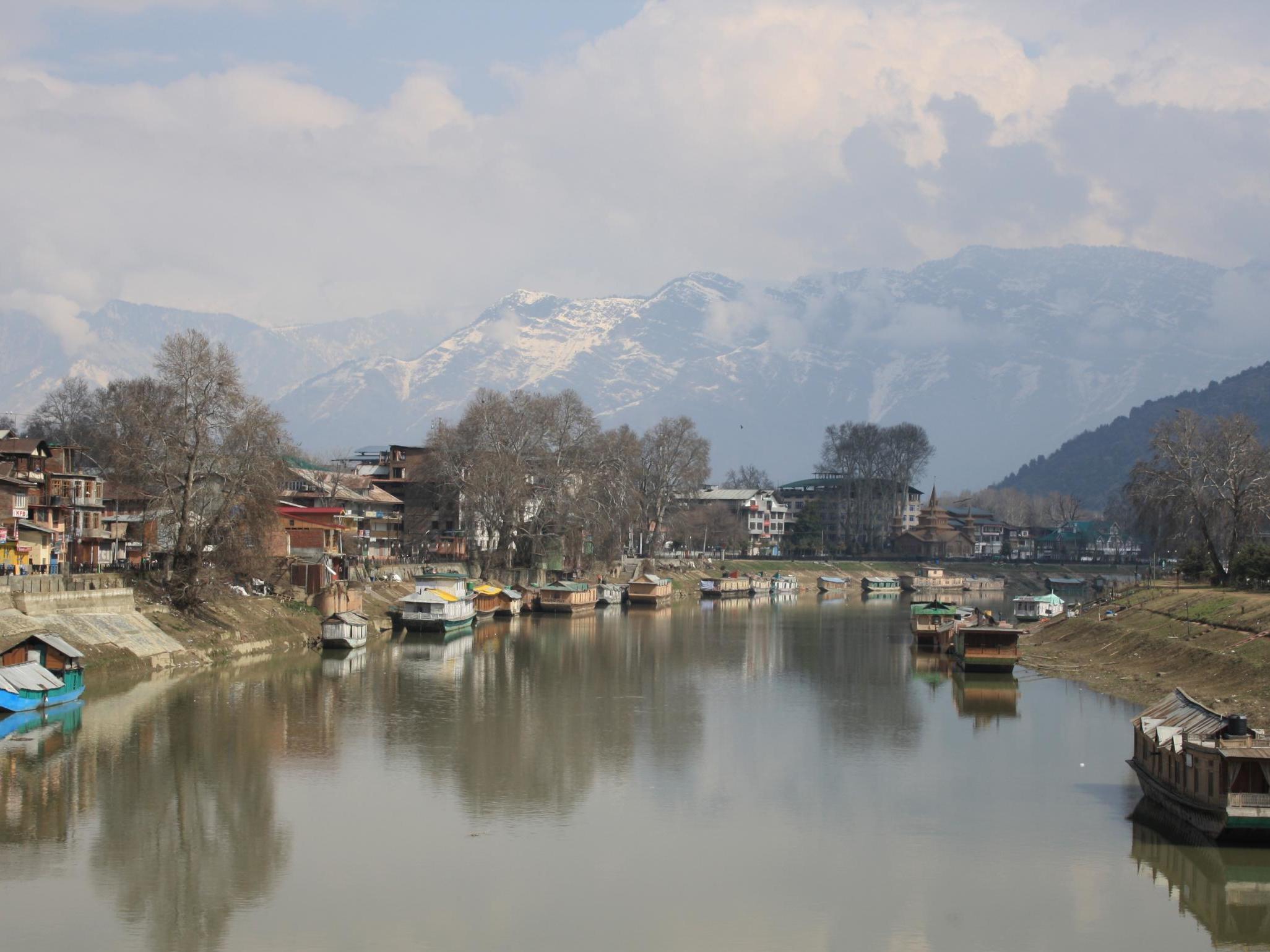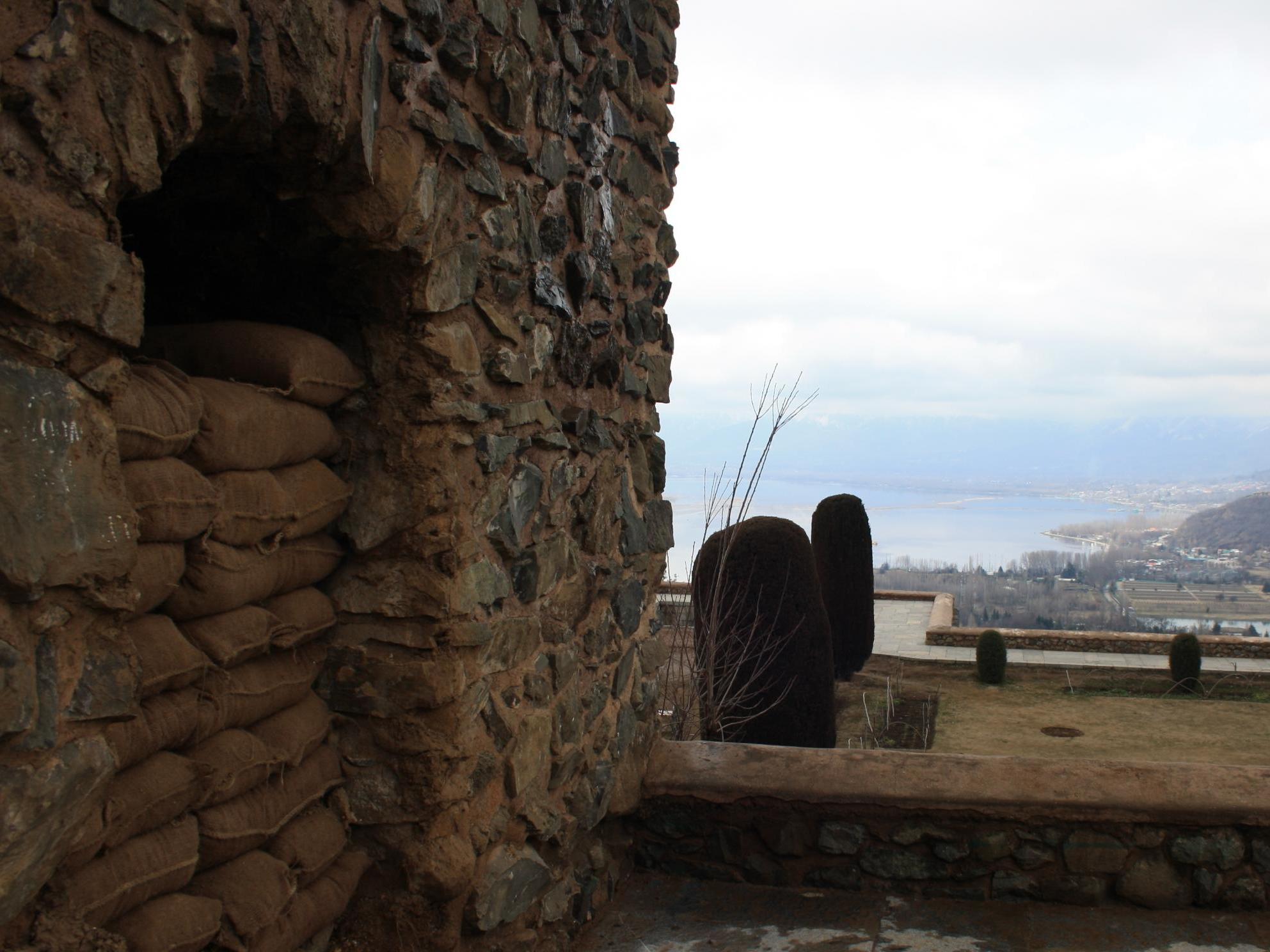‘Kashmir is no longer safe for Kashmiris’: Life amid the threat of nuclear war
‘The soldiers think we are their enemies now,’ one Kashmiri tells Adam Withnall


When the first fighter jets tore through the sky over his home in Srinagar, Kashmir, 50-year-old Mohammad Yusuf knew immediately that something was very wrong.
As a maths teacher, Mr Yusuf has worked at schools no more than 10km (six miles) from the “Line of Control”, the de facto border agreed by India and Pakistan between their respective territories in Kashmir.
Yet until last week he had never heard the roar of jets flying low overhead, never mind in Srinagar itself – the summer capital of India’s Jammu and Kashmir state, and a picturesque city well away from the border where the two countries regularly exchange shelling and gunfire.
The noise of the jets began at 3.25am. No one knew it just yet but they heralded a dramatic escalation of tensions in which two nuclear-armed nations would launch airstrikes against each other for the first time in history.
“Everyone woke up, everyone was frightened and ran outside the house,” Mr Yusuf, who lives with his wife and three children, tells The Independent.
“They looked towards the sky to see what was happening. It was night, we couldn’t see anything but we heard the jets. They were very loud.
“I had never heard that sound, but I knew what it must be. We thought something must be happening at the borders… We thought a war was starting.”
Mr Yusuf is not the only resident of Srinagar who describes lying to his children that day. Though he knew it wasn’t true, he told his youngest son, 10-year-old Azar, that “everything was OK, it was a regular movement of jets”.
This is the reality of life in Srinagar, caught in the middle of a row between India, Pakistan and Kashmiri leaders over the future of the region.
For although both India and Pakistan administer part of Kashmir, they both claim it in its entirety.
The tensions at the border mean that, even in the best of recent times, Kashmir has been described as the most highly militarised place on Earth, with an estimated 650,000 armed Indian security personnel stationed in a small valley surrounded on all sides by mountains.
Were it not teeming with armed police, Srinagar would be an inviting tourist destination. It boasts excellent skiing, trekking, stunning views over the great Dal Lake and exceptional heritage architecture.
Yet even the Pari Mahal, a 400-year-old terraced Mughal garden overlooking the valley, has its ancient stone pavilions stuffed with sandbags. The Indian paramilitary police force has moved in with a small camp here, too.
For residents, tensions have spiked dramatically since the 14 February car bomb attack by a separatist militant on an army convoy, and the aerial engagement that followed between India and Pakistan.
Abdul Karim Kaloo, a boatman in his seventies offering rides across the Jhelum river, says the last time he saw fighter jets flying over Srinagar was in the 1965 India-Pakistan war.
“This reminds me of that time,” he says.

With traders’ associations calling regular strikes and the city on edge, Mr Kaloo says his business is suffering. “It’s really down, and there is also a lot of fear among the people of Kashmir because of this conflict.”
He has two grandchildren, and worries for their safety most of all. “People don’t know if they leave their home in the morning, whether they’ll come back in the evening,” he says.
There are no shoppers along the downtown street where tourist groups would normally be taken to see handicrafts and Kashmiri textiles, much sought after in the rest of India.
One elderly shopkeeper is too nervous to talk in the current climate.
Another, 25-year-old Aabid Kapra, speaks passionately about how, between the strikes and tensions with the security forces, the current crisis is killing his business.
“Day by day we are becoming more stressed. Financially we are losing, our education is disappearing, our businesses are being lost, and it is taking its toll on our minds.”
The armed police have been enforcing greater restrictions on movement and crackdowns on separatist political groups since the Pulwama attack, and Mr Kapra spoke angrily about being blocked from walking to his own shop.
“Whenever I go outside and see the armed troops standing there, I feel harassed,” he says. “In the rest of India, the army are there to help you. Here, because they are a show of force, you can’t even ask them for an address. And if you see them doing something wrong, they are not accountable for anything.”

Speaking in a cafe where chronic food shortages meant most items were struck off the menu, medical student Aabru Jaan, 22, says she has felt a change in the behaviour of the Indian paramilitary forces since 40 of their officers were killed at Pulwama.
“We feel like the soldiers think we are their enemies now,” she said.
She sympathises with their emotions. “Being a Kashmiri, we all know what it is to lose a family member,” she says. “We have all lost someone. In my village we have lost lives, and youngsters have been injured by pellet guns.”
Like Mr Kapra, she says “just going out and about” has become a challenge.
“There are so many restrictions, more soldiers have been called here, and because the situation has been so intense I feel like Kashmir is no longer safe for Kashmiris,” she says.
“Before Pulwama, we felt like the situation was improving – still not normal but it was OK. Now this is all leading to a crisis between Pakistan and India, and Kashmir is getting stuck in the middle.”
Sitting with a friend on the grassy riverbank, 21-year-old computer engineer Mohammad Abrar has a good job and, it would seem, plenty of reason to be optimistic.
He says, though, it has been a week of “sleepless nights” for the city, and “the first time in my life that I had seen tension like this on the streets of Srinagar”.
When the jets were flying overhead last week it was “like a scene from a war movie”, he says. “We were very worried, we didn’t feel safe in our homes.”
Even if tensions ease a little in the future, he is not optimistic for a long-term solution that might bring hope to the people of Srinagar. “There is no future here for anyone,” he says. “For any child, any man, in any home, there is nothing.”
Join our commenting forum
Join thought-provoking conversations, follow other Independent readers and see their replies
Comments